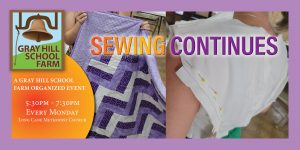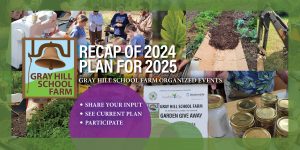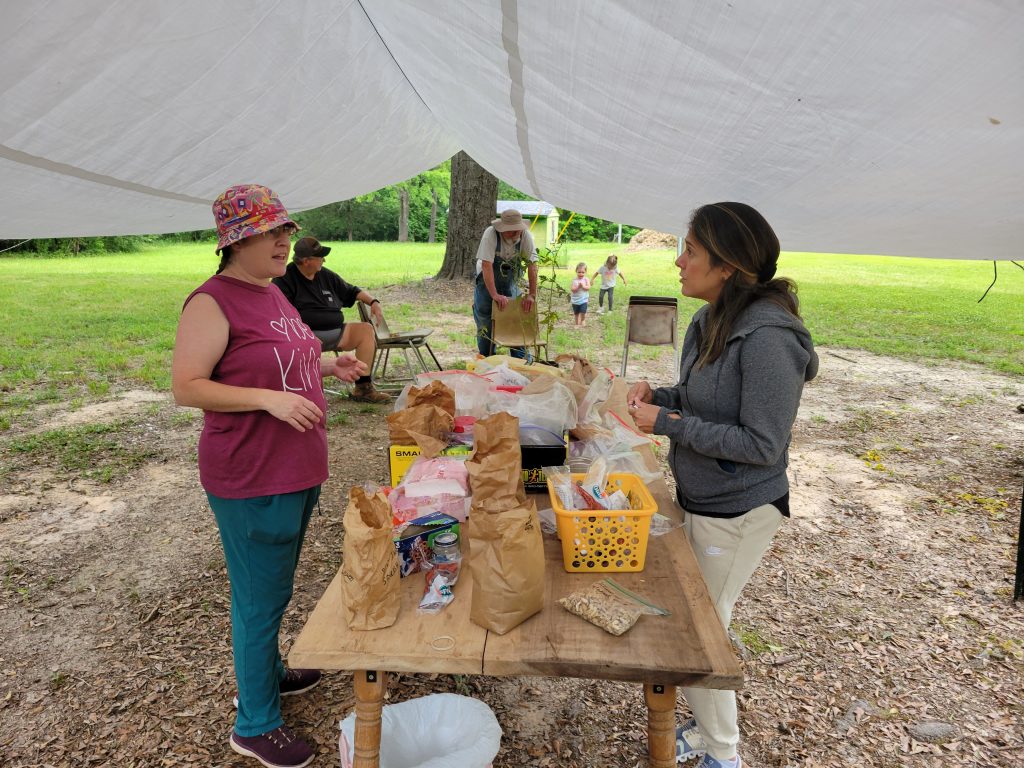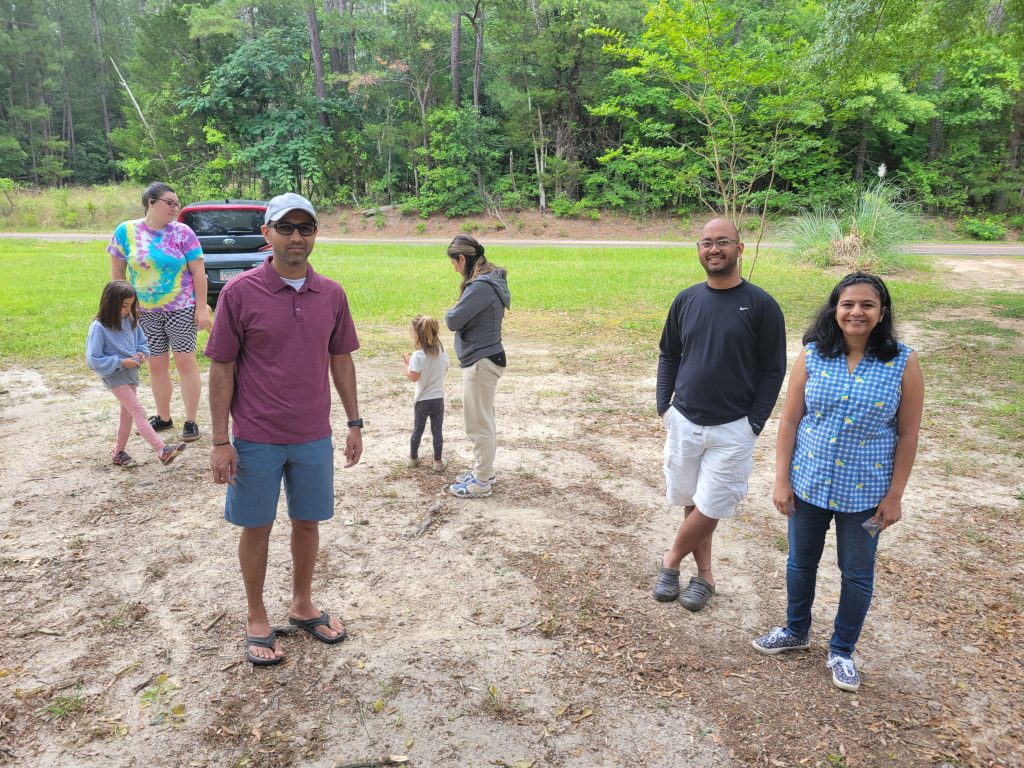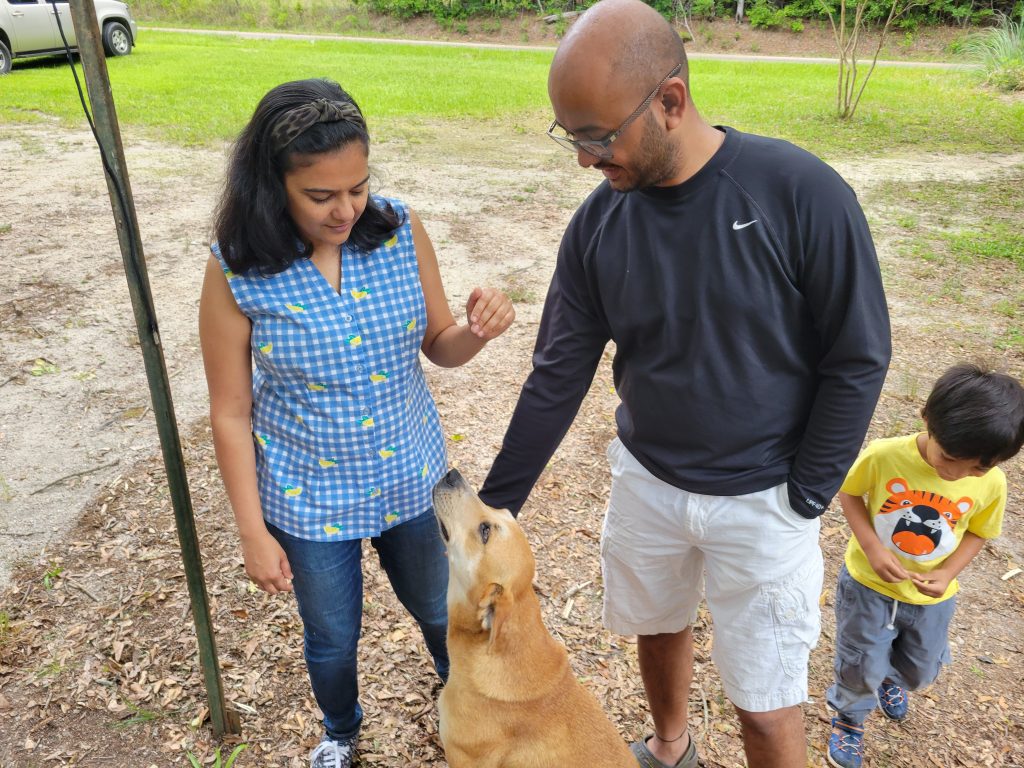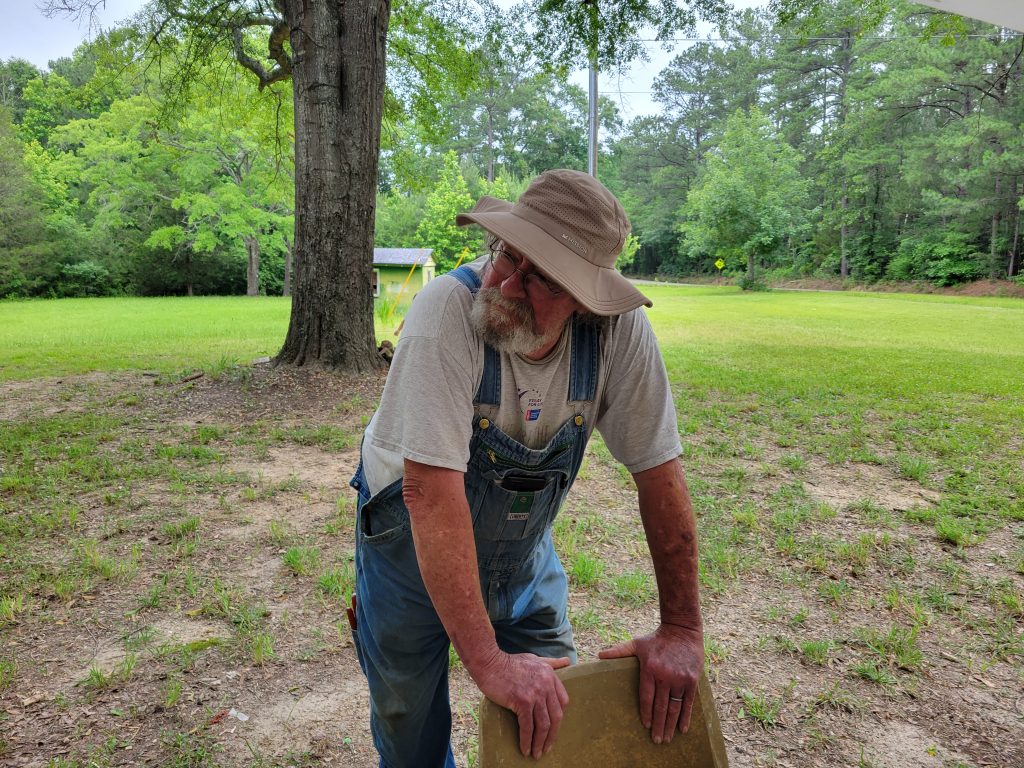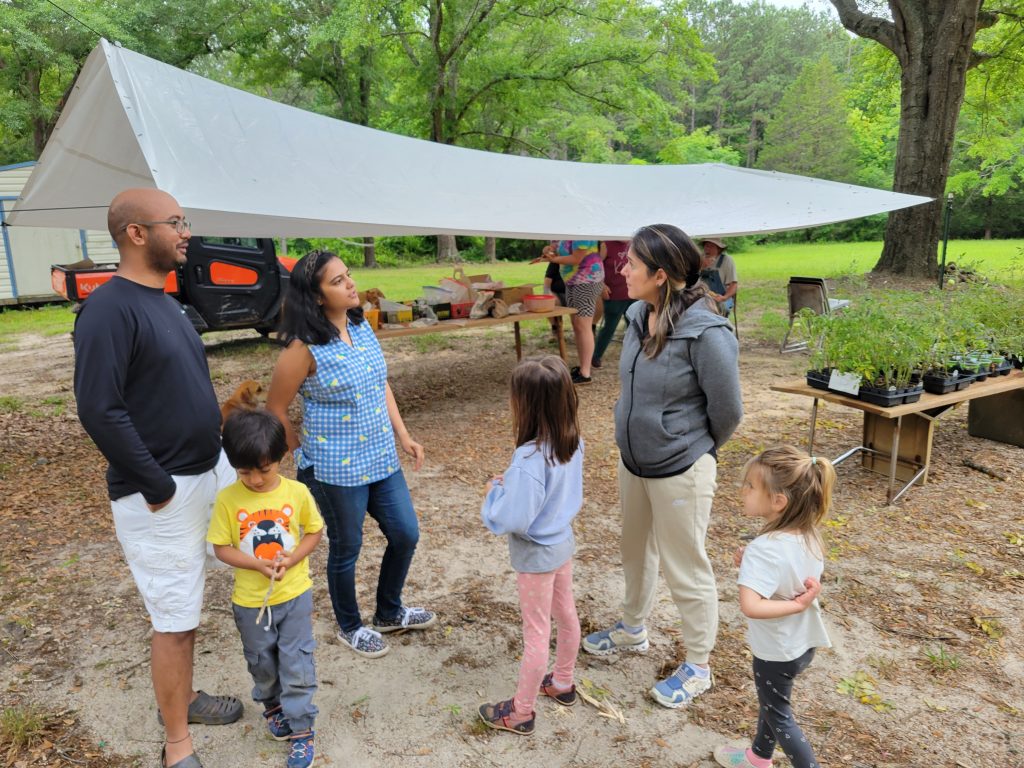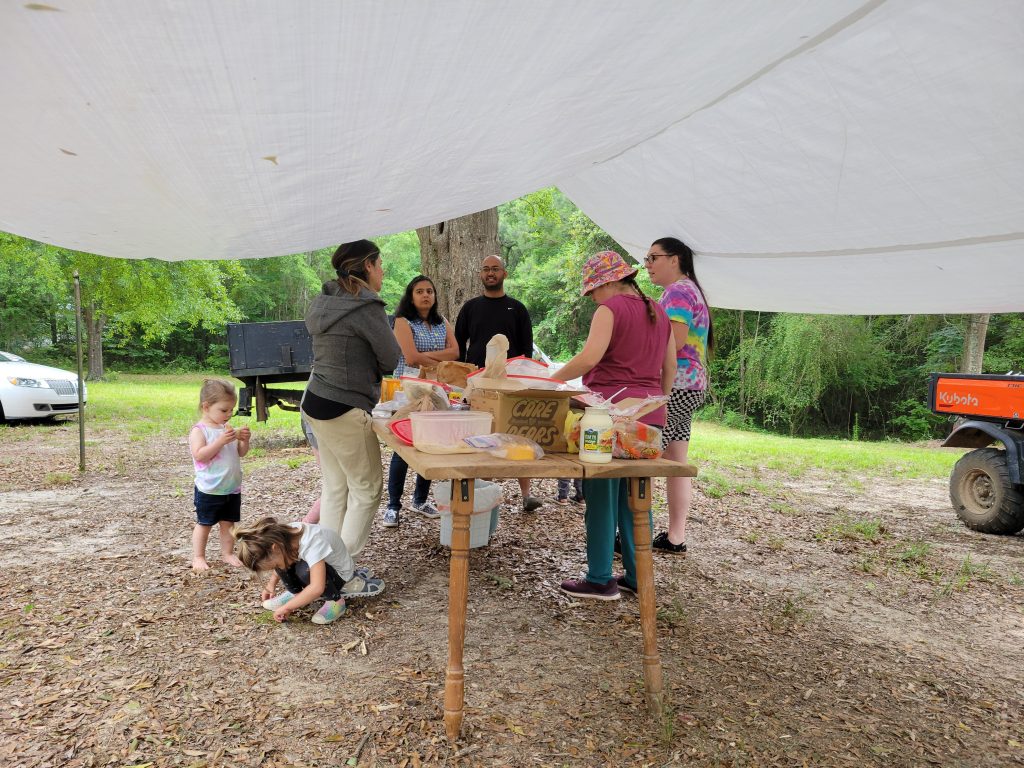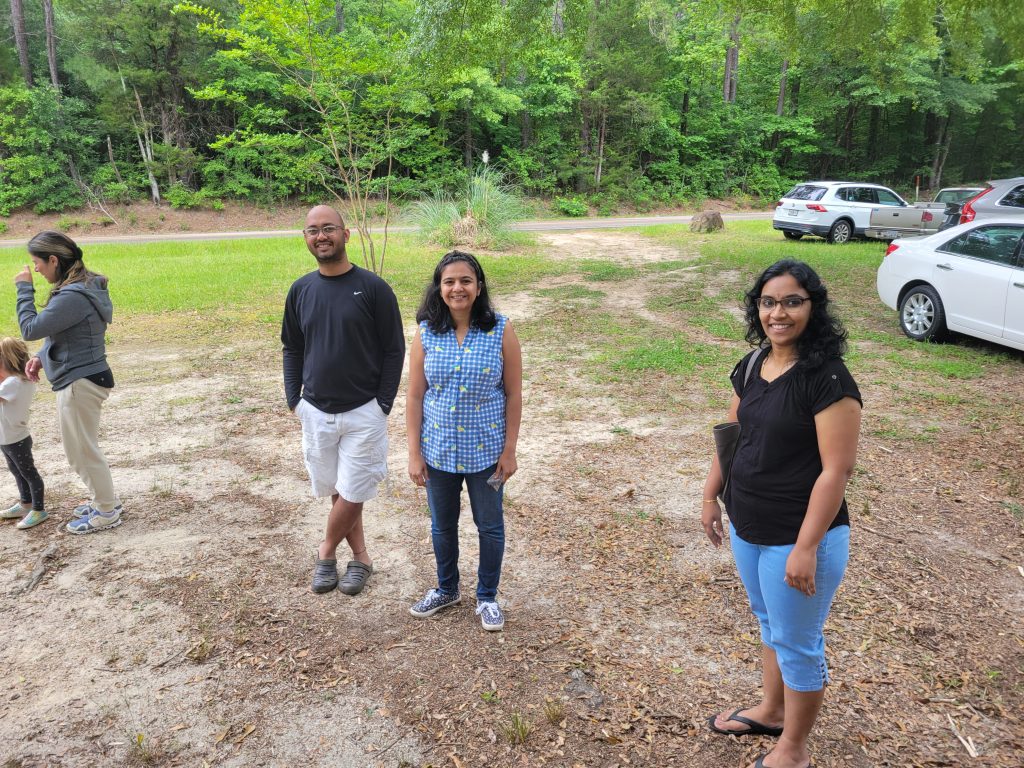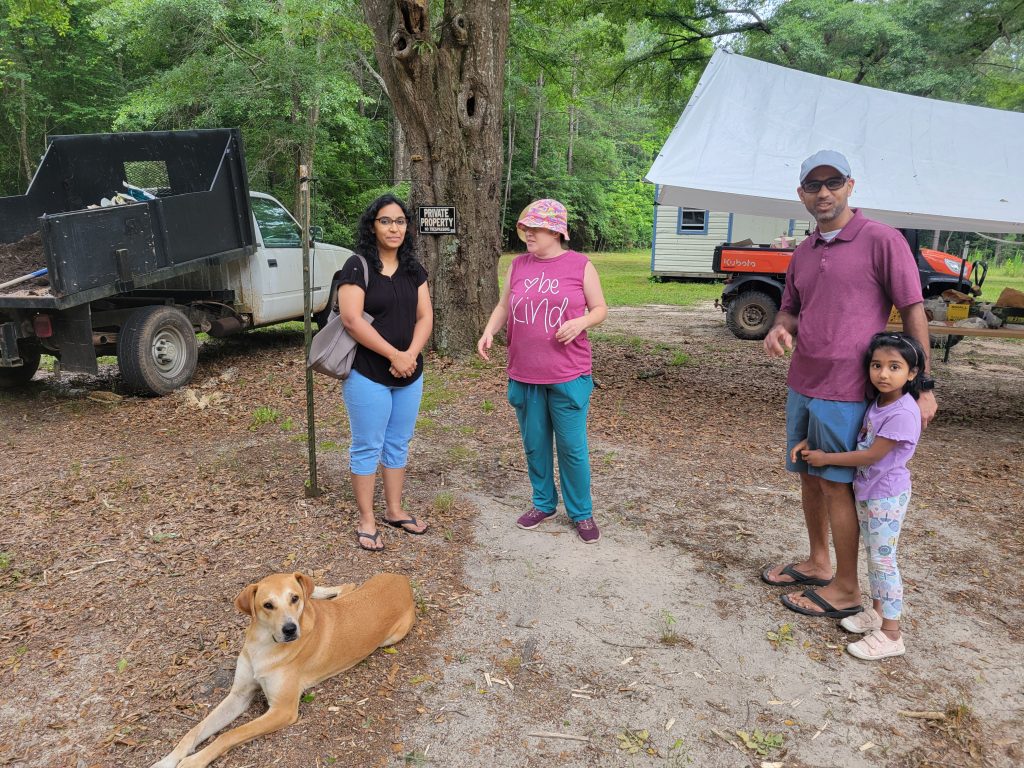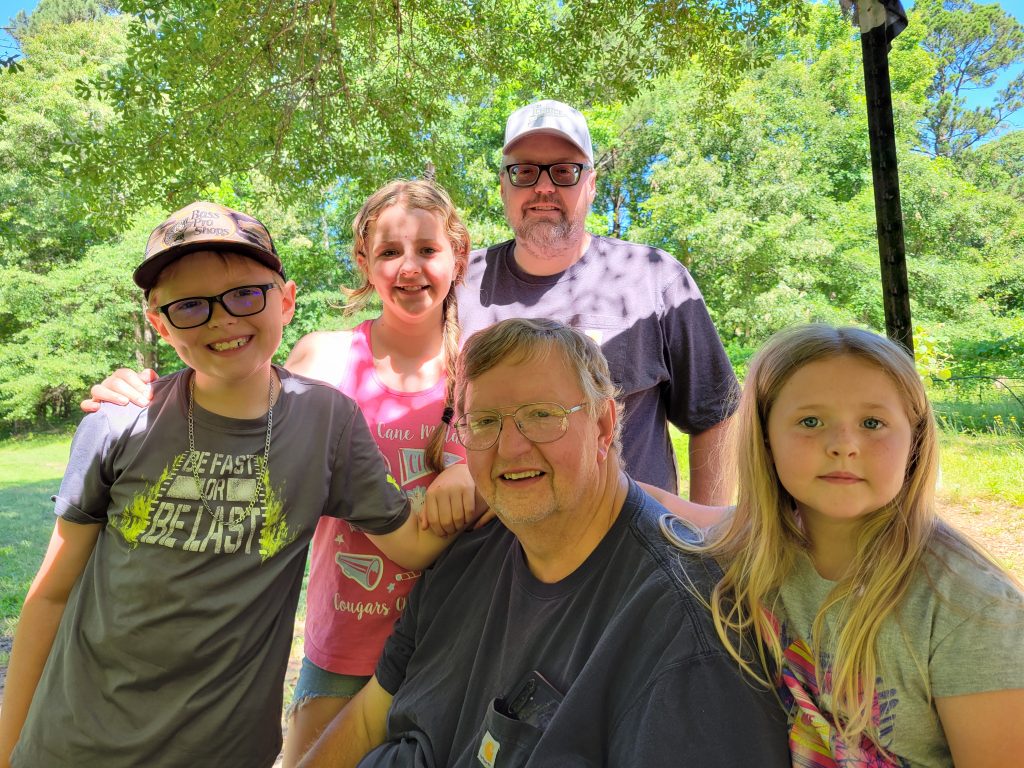Bring a Hammock or blanket, musical instrument, picnic lunch to GrayHill School Farm… I will be here all day answering questions about beekeeping and regenerative gardening, Come to 347 Gray Hill School Rd. (long drive) two driveways down the hill from RabbitEye Farm.
Red Basket
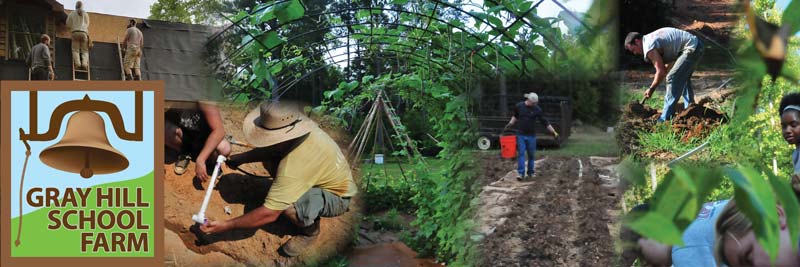
The Farm Report –pot-lucks, farm tours and crowd funding The more I learn about sustainable and regenerative gardening, the more there is to learn. I will always be a student, yet I feel a calling to teach and spread good news of abundant living.
Friday evenings in August -I am asking family, friends, and supporters to join me in pot-luck dinners. I need your prayers, ideas, energy and skills. We will hang some hammocks, climb some trees and find some common ground. Acoustic instruments are encouraged. Fun starts at 4:30 p.m. We will ask God’s blessing on the food and wine at 7 p.m.
Saturdays in August- To bring awareness to our crowd funding drive, Gray Hill School Farm will host “open house” with farm tours and introductions to permaculture, aquaponics and beekeeping. We want to provide the tools so you and your family can share in our vision of abundance and health. These are walking tours so bring comfortable shoes. There will be plenty of places to enjoy a picnic or hang a hammock. Acoustic music is always encouraged, so feel free to bring an instrument.
The future?? – We have been planning, planting and building for 4 years. Our money, our time and the help of many volunteers have brought us this next phase of growth. Local philanthropists need to see your support before committing funds to the vision. The local Woodmen Chapter has organised a crowd funding campaign through Red Basket. We are currently using the rental property on RabbitEye Farm while building the Aquapoincs facility. If we raise $100 or $100,000 our research will continue, whether as an unsupported hobby or a supported ministry, time will tell.
Share the vision– Please read the About section for more details on our community vision. I will be honored to speak or present at your churches, civic groups or other organisations to raise awareness for the Gray Hill School Farm and our vision of community abundance.
Doug Roberts Farmlandthropist
Gray Hill School Farm
Neonicotinoids – Honeybee Colony Collapse – Local Home Depot
What are Neonicotinoids? Why should we all be concerned, upset, outraged? If you don’t read any further, read this: Neonicotinoids are a LEGAL (now in 2016) insecticide that has been linked to honeybee colony collapse.
First of all, this topic is not new, this group of chemicals is not new and the information and concerns about the findings are not new. Government action on this topic is moving at glacier speed. Moving, yes…quickly, no. You should be aware of this information and keep yourself knowledgeable. It effects YOU.
Neonicotinoids are a specialized systemic agricultural insecticide resembling nicotine. Systemic means that it is actually in the plant. Many are water soluble so they can be taken up by the plant as it grows. The first commercial use was as a seed coating. You probably remember seeing corn seed coated with a pink powder. There are several “varieties” of neonicotinoids including Nitenpyram, Dinotefuran, Thiacloprid, Acetamiprid, Clothianidin, Thiamethoxam and Imidacloprid. Invented back near the 1970’s and coming under scrutiny back in the 1990’s, these chemicals have been used all over the world. Eighty percent of all seeds in 2008 were treated with neonicotinoids.
In 2008, the link to colony collapse became more prominent when a planted cornfield undeniably poisoned a massive amount of nearby honeybees in Germany. Germany suspended use, followed by France and Italy. The U.S. did not. Again, a 2012 study found thiamethozam and clothianidin (both neonicotinoids) in dead bees in agricultural settings. Some bees still alive had tremors and convulsions both indicating poison. Tests also proved that corn pollen foraged by bees tested positive for neonicotinoids. Recent research establishes toxicity for both honeybees and other beneficial insects even with very low levels of contact.
In 2013 almost all corn in the US was treated with either clothianidin or thiamethoxam. And a year later the soybean growers joined in along with cotton and sugar beets. Now, soybean growers are using the most neonicotinoids of any major crop. Yes, increasing use, not decreasing! Bayer Cropscience and Syngenta are two major manufacturers of neonicotinoids whose names you probably recognize. So, the U.S. continues to allow use… why? The U.S. Environmental Protection Agency (EPA) operates a 15-year review cycle for all pesticides… let that sink in… 15 years!
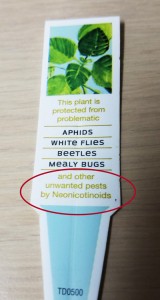 But there’s more. These chemicals are not limited for use by commercial growers. Many plants and seeds sold to consumers are treated as well as the availability of “consumer use” insecticides for purchase. Locally, (in 2016) we found tags on plants in Home Depot labeling the plant as being treated with neonicotinoids. Specifically, one of the plants was a Butterfly Bush, a pollinator attracting plant! (A Butterfly bush is not usually susceptible to invasive insects anyway.) So, a plant purchased specifically to provide forage for pollinators may actually be doing harm. The tags found were not prominent. Apparently, Home Depot requires plants treated with neonicotinoids be labeled as such, but the company continues to sell them. How many plants are available to buy nationwide that are not labeled? There is no law that consumers must know the plant has been treated with a systemic insecticide. Still, Home Depot is knowingly selling neonicotinoid infused plants.
But there’s more. These chemicals are not limited for use by commercial growers. Many plants and seeds sold to consumers are treated as well as the availability of “consumer use” insecticides for purchase. Locally, (in 2016) we found tags on plants in Home Depot labeling the plant as being treated with neonicotinoids. Specifically, one of the plants was a Butterfly Bush, a pollinator attracting plant! (A Butterfly bush is not usually susceptible to invasive insects anyway.) So, a plant purchased specifically to provide forage for pollinators may actually be doing harm. The tags found were not prominent. Apparently, Home Depot requires plants treated with neonicotinoids be labeled as such, but the company continues to sell them. How many plants are available to buy nationwide that are not labeled? There is no law that consumers must know the plant has been treated with a systemic insecticide. Still, Home Depot is knowingly selling neonicotinoid infused plants.
Although small, Maryland, on a state level, in April of 2016, has restricted the use of insecticides “by consumers” containing neonicotinoids. A partial ban is better than no ban. Maryland has at least recognized the problem.
The EPA is evaluating this insecticide group and is said to release its findings in 2018… like I said, glacier speed.
Please research this topic on your own, read labels, check tags and hopefully choose NOT to buy neonicotinoid products, plants and seeds.

